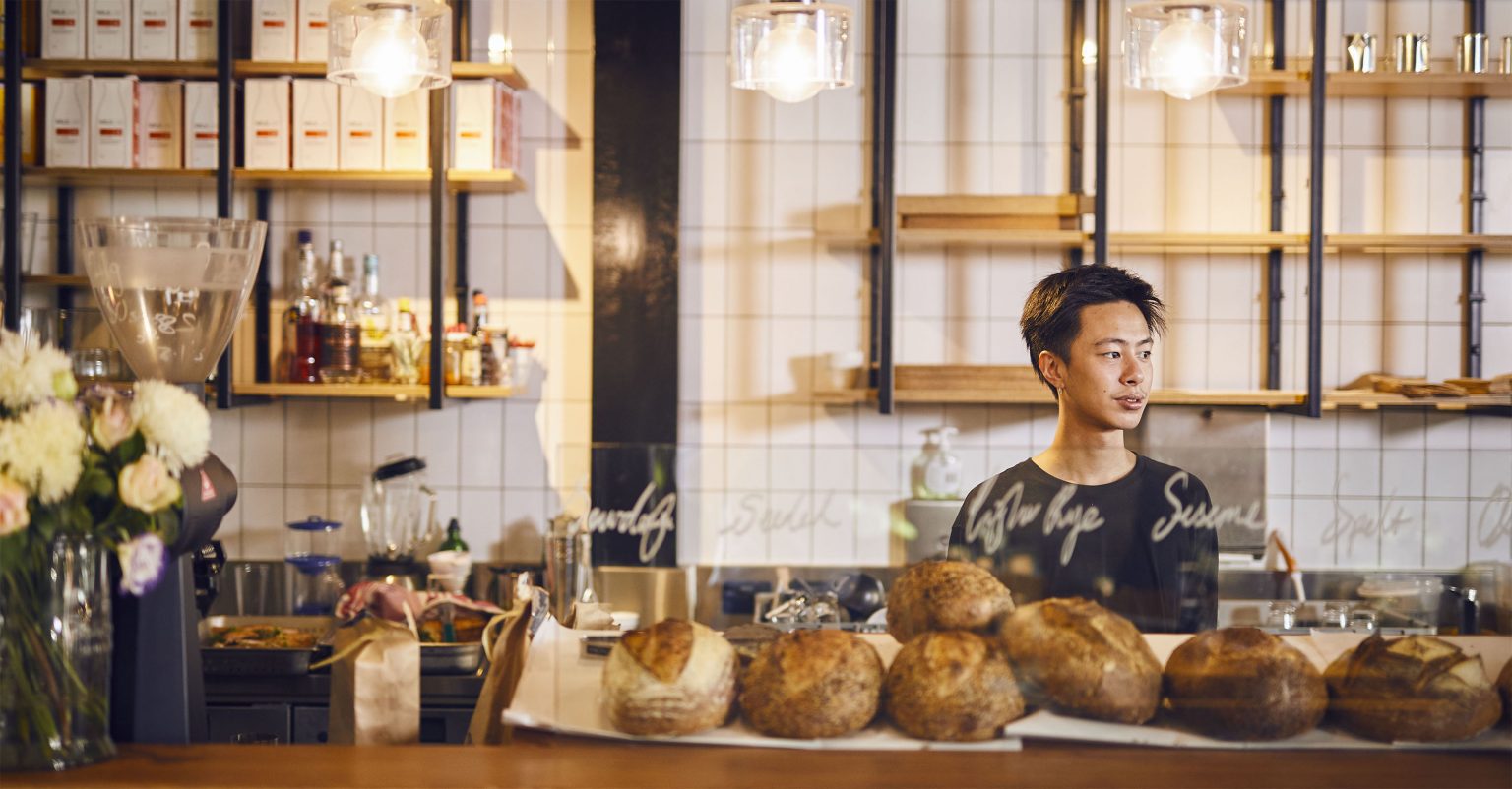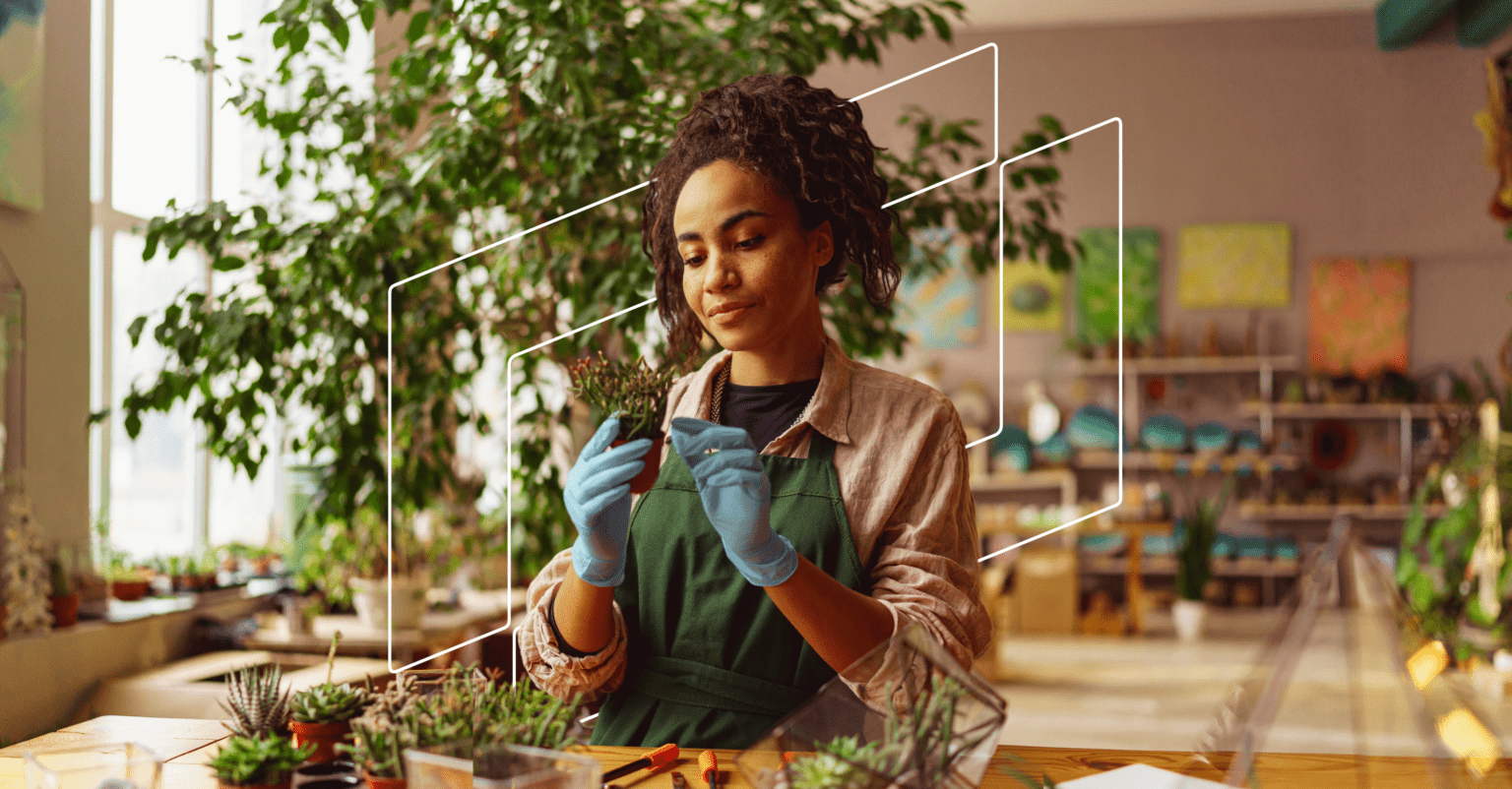Bec Scott is no stranger to the power of belief to fuel impact. Her social enterprise STREAT has grown from a single street food cart into a diverse group of businesses that provide employment pathways for marginalised young Australians. Here’s how.
At a glance
Here’s a snapshot of the advice from our interviewee:
- Don’t limit your growth plans to the money or resources you currently have.
- Picture a future city 10 or 20 years from now. What do we need to do to live in that city now? This helps with planning your next move.
- Entrepreneurs are good at seeing all types of capital, from social, financial, political, environmental and cultural capital, harnessing each to find the resources they need.
Just one meal was all it took to change her life forever. Bec Scott was happy with life and working in a rewarding career in science with the CSIRO in Canberra. She was on holiday in Vietnam in 2004 when she stopped off for a meal at a small, friendly cafe called KOTO in Hanoi.
After ordering rice paper rolls and tamarind dipping sauce, she picked up a card on the table and began to read about KOTO. She was surprised to learn she was at a social enterprise cafe, which takes young homeless people off the streets, trains them with hospitality skills and gives them employment as servers, baristas or cooks.
She looked down at her delicious food and back up at the smiling faces around her and began to grasp the tangible difference her meal was making.
That night she rang her partner Kate and told her that she knew what she wanted to do for the rest of her life. Kate later flew across to join Bec and together they rolled up their sleeves to volunteer at KOTO, learning all they could about the social enterprise. Bec and Kate then made the decision to build a similar social enterprise back home in Australia – but not in Canberra.
Finding STREAT’s home
“We looked to relocate to either Sydney or Melbourne, because we would need to be in a city of that size to help develop a scalable social enterprise and have all the connections with other businesses,” said Bec.” It soon became apparent to us that Melbourne was the real epicentre for social enterprise in Australia.”
They co-founded STREAT to be scalable and address homelessness in Australia by offering training and employment pathways in hospitality. It began with one street food cart in Federation Square, which, in hindsight, did not take Melbourne’s weather into account. They changed tack, and began to grow and open up more weatherproof venues around the CBD.
According to Bec and Kate, their approach is and needs to be holistic. Working with homeless young people means at times the work crosses over into justice, mental health, or drug and alcohol issues. But the hospitality industry fosters opportunities to bring trainees, trainers, supporters, suppliers, owners and the community together under one roof. This helps young people find and make connections in the community.

Since starting STREAT, Bec, Kate and their team have helped more than 3,100 young people with more than 240,000 hours of individualised support services, training and employment pathways. Bec has also been awarded a Medal of the Order of Australia in recognition of the impact she has made in the community. Bec and Kate now have their eyes turned towards helping the planet as well as people.
Caffeine for social change
“Caffeine is our gateway drug for social change,” says Bec. “If you asked me what goodness was in our first cup of coffee, I would have said that it was giving a young homeless person training and employment opportunities. But now, there are so many other ways I can describe the goodness in every drop of coffee that goes into each cup. We’re thinking about where we source our coffee beans, handle waste, put our grounds through our worm farms, use renewable energy, and understand and minimise the packaging we use. There are currently 24 ways we can create goodness in a single cup of coffee and we’re always looking for more ways to squeeze more goodness into every cup.”
During the pandemic, STREAT adapted to offer much-needed halal and vegetarian food relief meals for underserved refugee and migrant communities in Melbourne. They also partnered with other social enterprises to help get these communities through numerous lockdown periods.
Long-term partnerships
Now, these same social enterprises are looking to make their partnership a little more permanent. Bec has helped to set up Moving Feast, a long-term collaborative project to build a fairer, healthier and more regenerative food system for Victoria.
Starting in August, STREAT’s young trainees will have a choice of horticulture or hospitality programs. Bec sees a lot of potential for growth across training programs for young people in need to help them gain employment pathways in sustainable jobs.
Tips for founders
We asked Bec what tips she has for other founders of social enterprises or people with a great business idea they are looking to grow.
“I’d say to never limit your growth plans to the money and resources you have now. Many people plan out three years in advance and look to work with what they have to get there. I believe we’re better off thinking of a future that’s 10 or 20 years further out. Then we need to picture that future city and think about what we would need to do if we were to live in that city right now,” says Bec.
“I also think that social entrepreneurs are good at being resourceful. They don’t just see financial capital as their major resource. They seem to be able to spot social capital, political capital, environmental capital and cultural capital, and harness all of those things to their advantage. It’s a relentless energy.”
Believe in the power of your business to spark social change? We believe it too. Find out how a Prospa Small Business Loan could help you get there.








